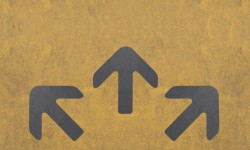
Free Choice
Choices are free; it is the consequences that we pay for dearly. Or, more dearly, that pay us.
Most things in life are beyond conventional choice. We cannot choose not to breathe and remain living. We cannot choose to cease eating and expect to grow older. Like the color of our eyes, our genes, families, minds, natures, abilities, are mostly ingrained in us and beyond our will to change. True free choice is what we choose to do with these parts that make us who we are and how we choose to live with the elements at our disposal. We cannot choose not to breathe, but we can choose what to do when we do breathe. We cannot choose to cease eating, but we very well can choose what to eat and how to eat it. These are the most freeing choices of all.
A Change of Heart: A Chassidic Story About Teshuvah
“To truly experience teshuvah,” concluded Rabbi Schneur Zalman, “is to experience the same degree of regret over one’s past actions as was experienced by the peasant from Shklov as the raging river swept him away.”
Read MoreFaith, Reason, and Predetermined Choice.
A deep exploration of the balance between the deterministic character of the universe, and the freedom of choice that we all hold so dear.
Read MoreThe Meaning: You Shall Be Holy for I Am Holy
What does the commandment “You shall be holy for I am holy” mean? Our relationship with G-d is complex. We contribute as much and even more than we receive.
Read MoreDoes evil come from G-d?
Philosophers and theologians of all ages have asked: Does evil come from G-d? If G-d is the essence of good, can there be evil in His work?
Read MoreFree Choice
The ultimate criterion of “free choice” is not “Is it determined?” but “What determines it?” Every choice is determined by something, be it a rational motive or an intuitive flash of no traceable origin. True choice is when one’s course of action is determined by, and only by, the very quintessence of self.
Read MoreThe Rebbe On Why Moses Broke the Tablets
In breaking the tablets, Moses was acting on his own, contrary to his divine mission to deliver G-d’s Torah to the world. In breaking the tablets, Moses, who could not presume that G-d was to replace the first tablets with a second pair, was eradicating his very being, his very raison d’etre, for the sake of his people.
Read MoreDid G-d Want Adam and Eve to Eat the Fruit?
Did God want Adam and Eve to eat the fruit from the tree of knowledge? What does this say about the existence of good and evil in the world, and purpose?
Read MoreThe Determined Chooser
“Choice vs. Determinism.” How much control do we really have over our actions?
Read MoreFree Choice
Free choice is a “a fundamental principle” of Jewish faith according to Maimonides. Parshat Devarim addresses the apparent contradictions of this principle
Read MoreThe Eastern Colonists
Chassidic explanation of the difference between the Spies and later the Tribes of Reuben and Gad who requested land east of the Jordan re divine sparks.
Read More












